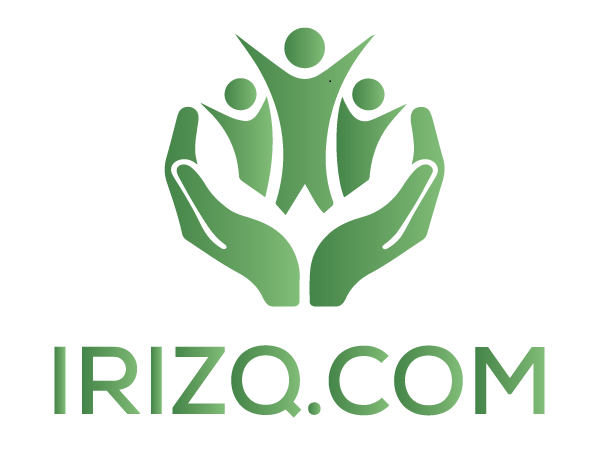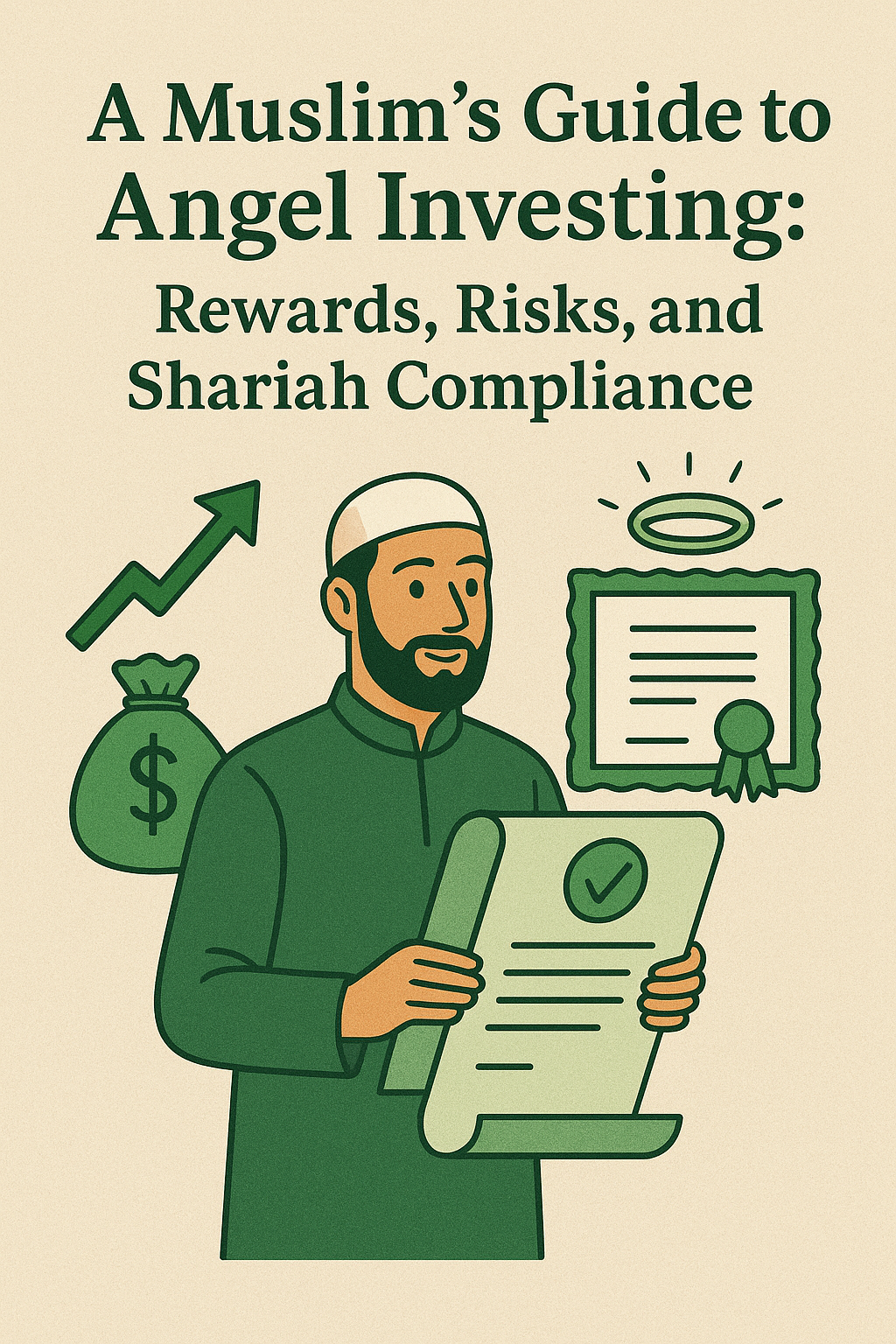The free guide explores how Muslims can pursue early-stage investment opportunities ethically and profitably by balancing financial rewards, business risks, and Shariah compliance to build a stronger, halal-driven economy.
Introduction
Angel investing is becoming increasingly popular among Muslims who want to diversify their investments and support impactful businesses. But many Muslims rightfully wonder: Is angel investing halal? How does it align with Islamic principles? This guide offers a comprehensive look at angel investing, breaking down its risks, rewards, and Shariah compliance in a way that empowers you to make informed, ethical investment decisions.
What is Angel Investing?
Angel investing involves providing early-stage funding to startups or small businesses in exchange for ownership equity. Angel investors typically fund businesses that have high growth potential but are too early for traditional banks or venture capital firms. Along with funding, angels often provide mentorship, industry connections, and strategic guidance to entrepreneurs.
Angel investing can be highly rewarding because it allows you to get in early and benefit from significant business growth. However, it also comes with considerable risk since startups are prone to failure.
Shariah Principles in Investing
As Muslims, our investing must follow specific Shariah principles:
-
No Riba (Interest): Investments should not generate returns through interest.
-
No Gharar (Uncertainty): Avoid excessive speculation or ambiguous contracts.
-
No Haram Activities: Stay away from industries such as alcohol, gambling, conventional finance, and unethical entertainment.
-
Profit and Loss Sharing: Wealth generation should involve fair distribution of risk and reward.
Islam encourages real economic activity where wealth is earned through tangible, value-creating business transactions.
Angel Investing: Shariah Structure
Angel investing most closely aligns with Musharakah, a partnership model in Islamic finance where both parties contribute capital and share profits and losses.
Why Angel Investing is Musharakah:
-
Equity Ownership: Angel investors become shareholders in the business.
-
Profit and Loss Sharing: Investors share in both profits and potential losses.
-
No Guaranteed Returns: Shariah prohibits fixed or guaranteed profits; success depends on business performance.
Why Angel Investing is NOT Mudarabah:
Mudarabah involves one party providing capital and the other providing management without the investor taking ownership. In angel investing, the investor takes ownership and is entitled to equity-based returns, which makes it a Musharakah model.
Rewards of Angel Investing
1. High Growth Potential
By investing early, you have the chance to benefit from exponential business growth. A successful exit (via acquisition or IPO) can yield returns many times your original investment.
2. Real-World Impact
You can support businesses that align with your faith and values, creating positive change in society.
3. Diversification
Angel investing offers an alternative asset class to stocks and real estate, helping diversify your investment portfolio.
4. Personal Growth
Being involved with startups can expand your knowledge, business skills, and network.
5. Barakah in Wealth
Supporting halal businesses contributes to the growth of the Ummah economy and adds barakah (divine blessings) to your wealth.
Risks of Angel Investing (and the Islamic Viewpoint)
1. High Risk of Loss
Statistically, many startups fail or underperform, making capital loss a real risk. In Islam, this is an acceptable risk within Musharakah agreements as long as it is managed ethically.
2. Illiquidity
Angel investments are long-term commitments. Your money is locked in for several years, with no option to sell easily.
3. Dilution Risk
Future funding rounds may dilute your ownership percentage, though they may also increase company value.
4. No Regular Income
Angel investing usually doesn’t provide monthly or quarterly cash flow. Returns mostly come at exit events.
5. Risk with Responsibility
Islamic finance emphasizes ‘responsible risk,’ meaning you must understand and accept the risks transparently without excessive speculation (gharar).
How to Start Angel Investing as a Muslim
✅ Assess Your Financial Readiness
Only invest capital you can afford to lock away for 5-10 years without expecting regular income.
✅ Screen Business Models for Halal Compliance
Invest only in startups offering halal products or services.
✅ Read Legal Agreements Carefully
Ensure you understand shareholder agreements, equity distribution, and exit strategies.
✅ Perform Due Diligence
Investigate:
-
Founder credibility and track record.
-
Product-market fit and revenue model.
-
Financial health and scalability.
✅ Consider Self-Directed IRAs/401Ks (Optional)
Use these to maximize tax benefits if you’re in the U.S.
✅ Join Muslim Angel Networks
Platforms like Halal Angels Network or regional Muslim investing groups can provide vetted, faith-compliant opportunities.
Red Flags to Avoid
-
❌ Get-Rich-Quick Claims
-
❌ Ambiguous Business Models
-
❌ Unclear Financial Records
-
❌ Non-Halal Business Sectors
-
❌ Excessive Speculation or Gambling-Like Strategies
Real-Life Inspiration
Across the globe, angel investors have played pivotal roles in building impactful halal startups, helping expand ethical commerce, and creating job opportunities while earning halal profits.
Final Thoughts: Is Angel Investing for You?
Angel investing offers a high-risk, high-reward opportunity to invest in promising startups while adhering to Shariah principles. It is not for everyone but can be immensely rewarding for those with:
-
Long-term investment goals,
-
High-risk tolerance,
-
Desire to contribute to ethical business growth.
If you have extra capital, believe in halal wealth creation, and want to make a difference, angel investing is a halal path worth exploring.
Bonus Resources
-
Books: "Angel Investing" by David S. Rose (for general knowledge), Islamic Finance books by Mufti Taqi Usmani.
-
Websites: Halal Angels Network, Muslim Startup Network.
-
Podcasts: Muslim CEO Podcast, Ethical Finance Podcast.
Remember: Always do your due diligence, consult knowledgeable scholars when in doubt, and make dua for barakah and protection in your wealth journey.
Disclaimer: This guide is educational and not investment advice. Always consult a professional financial advisor and Islamic scholar before investing.


